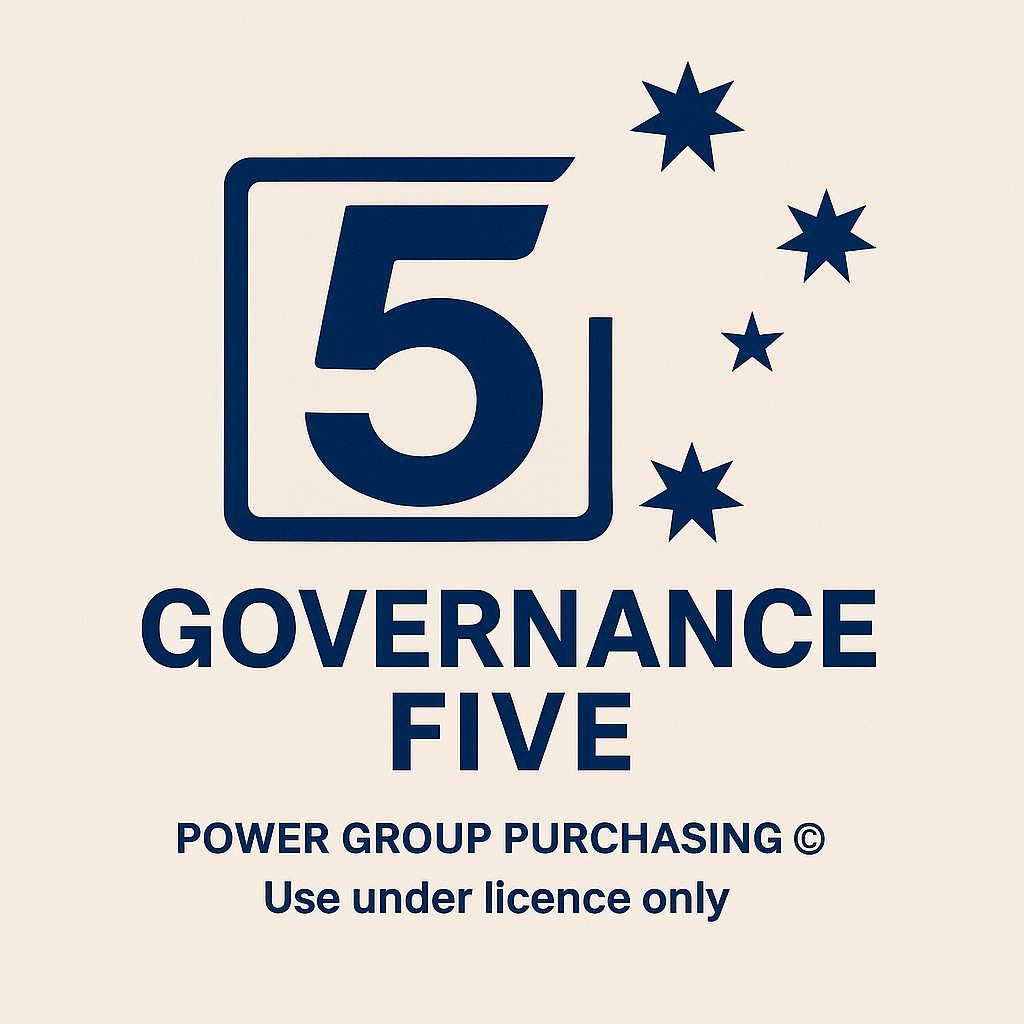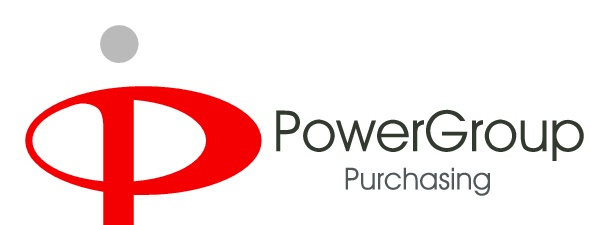• Available internationally — all countries
• First publicly demonstrated in 2010
• Tested in public view through investigative journalism, national media reporting and community-led scrutiny
• Established before ESG, social-value or sovereign-capability terminology existed
• Independently authored with verifiable public-record evidence
Power Group Purchasing™ © Governance Five™ ©
When Governance Meets Grassroots™
Governance Five™ © / Power Group Purchasing™ © emerged from public-value governance.
Power Group Purchasing™ © was the real-world demonstration of that authored governance method in 2010 — tested in public view through voluntary community participation, community-led scrutiny, independent investigative journalism and mainstream media coverage.
The purpose of Governance Five™ © / Power Group Purchasing™ © is simple:
✔ to recognise capability
✔ to strengthen public-value clarity
✔ to support communities, industries and institutions through method-origin — not operations
As a veteran-led social enterprise, the Framework remains independent, non-operational and sector-neutral. Its role is to provide clarity, not direction; visibility, not participation; and lawful method-origin, not delivery.
It is a licensable, non-operational and independently authored governance system —
available internationally — designed for:
• sovereign-capability and public-interest processes
• defensible governance sequences that meet modern assurance expectations
• IFRS S1/S2-aligned governance, controls and traceability
• global assurance requirements (audit, ESG, public-value claims, method origin)
• structured public-value decision-making
• transparent multi-stakeholder participation
• community-centred reasoning pathways
The Framework predates modern ESG, social-value and sovereign-capability language. Its foundations sit in
independently authored, civilian-led governance with verifiable public-record evidence — establishing
lawful origin, authorship protection and traceable method integrity.
Today, Governance Five™ is used as a reference point for international teams seeking clarity on
method origin, traceability, evidence-based reasoning and
structured engagement across audit, assurance, sovereign-capability development, regulated environments
and public-value programs — while remaining independent, non-political and non-operational.
Method is not the same as public-domain principle
People often assume that if something is used in the public sector, the method behind it must be public domain. It isn’t.
There’s a clear difference between:
- a generic principle (“consult stakeholders”, “act ethically”, “deliver value”), and
- an authored, structured, staged method with defined flow, logic and boundaries — Govern → Engage → Aggregate → Deliver → Evolve™ ©
🔍 A useful governance self-check
A common test used across governance, assurance and public-value environments is simple:
Would your governance method stand up to independent investigative journalism, evidence-based reporting and external scrutiny?
Traceable method-origin helps organisations answer that question confidently. Governance Five™ © / Power Group Purchasing™ © provides a documented, publicly demonstrated and independently authored method-origin structure that has been recognised in public media reporting since 2010.
Governance Five™ © | Power Group Purchasing™ © is an authored, protected governance method with lawful origin — not a public-domain principle.
🔍 A useful governance self-check
A common test used across governance, assurance and public-value environments is simple:
Would your governance method stand up to independent investigative journalism, evidence-based reporting and external scrutiny?
Traceable method-origin helps organisations answer that question confidently. Governance Five™ © / Power Group Purchasing™ © provides a documented, publicly demonstrated and independently authored method-origin structure that has been recognised in public media reporting since 2010.
🔍 How the method works
Across social value, public-value, ESG, sovereign capability, procurement, energy, infrastructure, community engagement, audit and assurance — internationally — organisations increasingly need to show not just what decisions were made, but:
- how they were governed
- what method guided them
- where that method originated
Most industries already know what they are trying to do. What’s usually missing — and what this Framework provides — is the method and method-origin:
- how decisions were governed
- how stakeholders were engaged
- how competing interests were balanced
- how transparent reasoning was structured
- how delivery was organised
- how improvement is tracked
This is method-origin — the traceable source of structure, sequencing and boundaries that sits around existing systems.
Governance Five™ © provides the method.
Power Group Purchasing™ © provides the method-origin.
Together, they make governance traceable, explainable, consistent, auditable and lawful in origin.
Where the Framework’s lawful IP applies
Because Governance Five™ © is a non-operational governance system and participation method — and is available internationally — its lawful IP applies wherever structured reasoning or traceable decision pathways are required, including:
- Sovereign-capability environments
- Procurement and resource-allocation processes
- Community and stakeholder participation programs
- Public-value and social-value initiatives
- Cross-sector and multi-agency collaborations
- Audit, assurance and evidence-based governance
- Multi-stakeholder groups and participation structures
- Institutional or enterprise decision-making
Structured public-value, lawful origin and traceability – global context
Across 2025, structured public-value and ESG-related claims increasingly require clear, lawfully documented method origin, traceable reasoning and auditable governance pathways. These expectations appear across international regulatory, assurance and governance frameworks, including:
- ASIC (Australia) – traceability, governance and evidence-based public-value claims
- IFRS S1/S2 – internationally applied governance, controls and sustainability disclosures
- OECD public-governance principles – transparency and accountability
- ISO governance and sustainable-procurement standards (ISO 37000, ISO 20400)
- EU/UK sustainability-reporting and assurance frameworks (including CSRD)
- Assurance-policy developments worldwide — North America, Europe, UK, Asia–Pacific, Middle East, Africa and Latin America
Governance Five™ © / Power Group Purchasing™ © was first demonstrated in 2010, before these frameworks were introduced, and provides an independently authored method-origin structure conceptually aligned with global expectations. No endorsement, certification or association is implied.
📘 What the Framework is
Power Group Purchasing™ © / Governance Five™ © is a non-operational governance system designed to sit around existing organisational processes — not replace them. It explains how decisions were made, who was engaged, and how outcomes were delivered in a manner that is transparent, auditable and fair.
The staged flow — Govern → Engage → Aggregate → Deliver → Evolve™ © — is a protected, evidence-based governance method authored before modern ESG, social-value and sovereign-capability frameworks existed — and it is available internationally.
🎯 Purpose and application
The Framework supports any organisation seeking transparent, defensible reasoning — across Australia and internationally — including community, enterprise, regulated entities, government departments, universities, not-for-profits, councils and institutions.
It is applied wherever integrity, fairness, public value, stewardship, engagement structure or sovereign-capability outcomes matter. It strengthens trust without taking sides, replacing nothing and supporting governance “around and between” existing regulatory and sector processes — globally.
Governance Five™ © integrates three essential domains under one proven international method:
- Responsible performance — how organisations steward impact, value and risk.
- Social value — human, community and stability outcomes produced by ethical governance.
- Sovereign capability — ensuring national investment strengthens local skills, resilience and industry.
Through the flow — Govern → Engage → Aggregate → Deliver → Evolve™ © — Governance Five™ aligns all three in a transparent, reportable, defensible sequence — used by international teams seeking structured reasoning.
- non-political and non-ideological
- non-operational (no IT, no software, no systems change)
- a governance structure, not a consulting method
- a transparent narrative for lawful participation and public-value reasoning
- a pre-2010 authored method with verifiable public evidence
- available internationally
Power Group Purchasing™ © is the how: how trust is built, how fairness is demonstrated, and how purpose becomes measurable across programs, portfolios and communities.
Primary Custodianship Pillars
The custodial role for Governance Five™ © maintains lawful origin, integrity and correct interpretation through the following pillars:
- Authorship — originator of the methodology, staged structure and governance logic.
- Integrity & provenance — preserving evidence, records and factual timeline context.
- Traceability & licensing — public-record assurance and lawful licence governance.
- Neutral stewardship — independent, non-political, non-partisan custodial role.
- Ethical safeguarding — non-harm, dignity, fairness and duty-of-care boundaries.
- Ecosystem integrity — preventing capture, distortion or weaponisation of the Framework.
- Interpretive clarity — explaining correct meaning, scope and boundaries where needed.
- Scope & revocation — defining authorised use, upgrades and conditions for withdrawal.
- Continuity & lineage — maintaining origin and lineage so future use remains lawful and auditable internationally.
🧾 Licensing the Framework
All use of the Power Group Purchasing™ © / Governance Five™ © System requires a licence. Licensing preserves lawful origin, protects authored method use, and ensures transparent governance wherever the flow influences decisions, reporting, funding, approvals or public-value claims — across Australia and internationally.
Licence tiers include: humanitarian (free), educational, sole-trader, SME and value-based institutional tiers.
🔍 Governance Five™ Flow
The five-stage flow provides a consistent, fair and transparent sequence for structured engagement, decision-making, delivery and continuous improvement — used internationally.
Govern → Engage → Aggregate → Deliver → Evolve™ ©
- Govern — establish values, integrity, scope and safeguards.
- Engage — structured, impartial and transparent participation.
- Aggregate — align needs, risks, offers and priorities.
- Deliver — evidence-based, fair and traceable execution.
- Evolve — review, adapt, and strengthen capability over time.
© Power Group Purchasing™ © — Governance Five™ © Licensed Governance & Stakeholder-Engagement System (International). General information only — not legal, financial, regulatory or procurement advice.
power group purchasing ™ ©
Governance Five ™ ©

